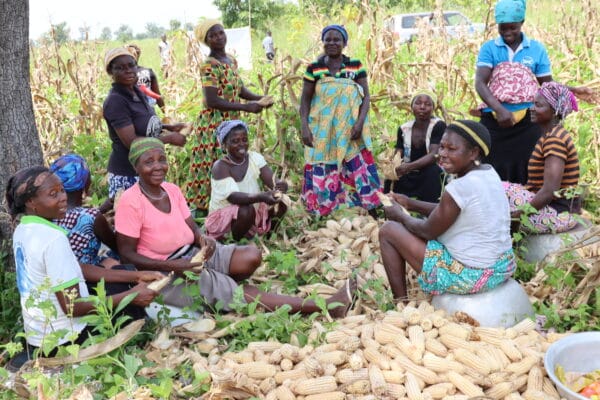
Term
- 5 years
Years
- 2019-2024
Direct Beneficiaries
- 30000
Indirect Beneficiaries
- 30454
Implementation Partners
Financial Partners

The four project districts (East Gonja, Nanumba North, Nanumba South, and Kpandai) are among the Northern and Savannah regions characterized by poverty, inequality, and deprivation. Smallholder farmers mainly (about 50% women) rely on rain-fed agriculture and have limited access to productive resources and services. The combined effects of high levels of poverty, heavy reliance on rain-fed agriculture, and poor access to resources and services create an increased vulnerability to climate change in those districts.
More than 60% of the population in the communities are mainly subsistence farmers who produce cereals such as millet, rice, sorghum, and maize; legumes (groundnuts and cowpeas); yam, and cattle. The smallholder farmers in rural communities face yield reductions (50% to 80% less than achievable yield) of farm produce in 2020 and beyond. Low soil fertility level, drought, poor agriculture practices, changes in rainfall patterns, lack of access to productive resources, and pest and rodent infestation result to yield gaps.
In Ghana, smallholder farmers face low production, depleted soils, unsustainable agricultural methods, especially fertilizer usage, poor post-harvest handling due to lack of knowledge, storage facilities, and limited market access.
The 4R- Nutrient Stewardship project aims to improve the socio-economic well-being and resilience of 80,000 (50% women) smallholder farmers in Ethiopia, Ghana, and Senegal through enhanced agricultural productivity and sustainability.

The overall objectives of the project is to:-
The project aims to:-







